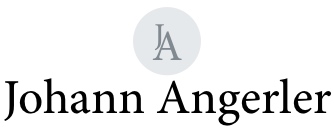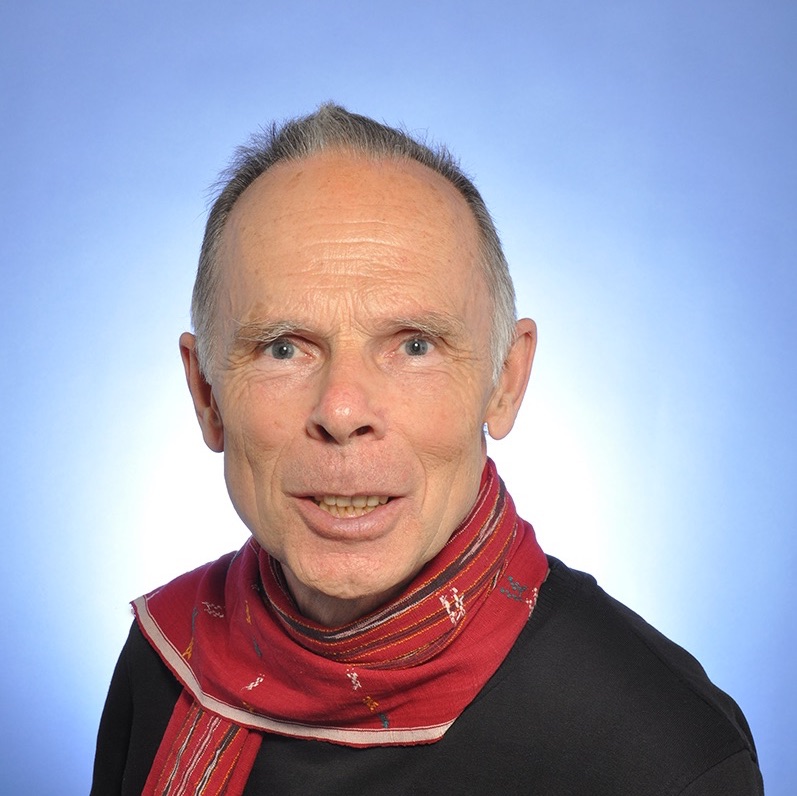What was the impetus for you to write the book „A World People’s Representation for a United Humanity“?
Three aspects: research and experience with the societies in Sumatra, observation of globalization and its dynamics, and many years of study of the history of mankind and the associated theories. From the knowledge that has become available to me, an idea has emerged over time, which I think is needed in our time.
What are your central questions or Theses?
I have to go a little further here. I use the term „paradigm“ to analyze our current political system. Some also speak of narratives that steer a society and, in contrast, of the „human nature“ that would supposedly control human behavior, and thus also political, social and economic behavior. We know today that human nature is much more flexible and versatile than has often been claimed (we are not just steered by „selfish genes“), and narratives can change frequently – without really changing the „paradigm“, which decisively determines political action. For example, capitalists who plunge into competition and communists who want to engage in class struggle operate within the same paradigm. It is about world view, how to view human society and relationships with each other (including power relations) and how we think that we can (or cannot) work together. It is essential to recognize that these are culturally determined views, even we think we are dealing with scientific or religious truths. Human culture and everything that goes with it has developed not only because of the „struggle for survival“ (survival of the he fittest), but also largely due to cooperation. A political paradigm must inevitably deal with the regulation of cooperation, that is its core task. All nomadic hunter and gatherer societies known today have a very clear political objective: namely not to allow their communities to be divided into rulers and the dominated and have therefore taken care to avoid the accumulation of power. If we project this back to the hundreds of thousands of years in which our ancestors have lived in this way, then we know the recipe for success of Homo Sapiens: cooperation works better among equals. This has partially changed with the invention of agriculture and sedentariness, and completely with the professionalization of warfare. This process still shapes our political paradigm today. Warfare enabled subjugation and thus the division of society into rulers and the dominated. This resulted in new opportunities for cooperation and the success of civilization, but also a miserable life for many. This state of affairs is maintained to this day; division and the struggle for positions of power determine the essence of our current political paradigm and this makes it impossible to further develop our possibilities for cooperation. Therefore, I see no prospect that within the framework of today’s political paradigm, the upcoming global problems, some of which threaten our existence (nuclear and other wars, climate catastrophes, economic collapse, etc.), could be solved. Therefore, my central thesis is that we should face the question of a fundamental change in the political paradigm, which absolutely must be thought of globally. It is not impossible for us to meet in the context of a new paradigm based on equal rights and equality of all people, to control the powers that dominate people, to restrict them in principle, and to institutionally require that the rules for global coexistence should be an outcome of the will of the people. The vision of the World People’s Representation shows a conceivable way to get there.
What is the essential difference between the current institutions and those you consider necessary in your vision?
Today’s international institutions have emerged as compromises between the powers of our current system and, however valuable they may be, they reflect the situation of fundamental division and do not have the legitimacy to solve global problems. A new institution, such as the World People’s Representation, would not have to be created as a compromise, but on the basis of the insight that this is the best way forward for everyone, because there are better opportunities for everyone if this new institution exists. This means that the World People’s Representation has the legitimacy and means to establish rules for all and does not have to respond to special requests from the powerful and allow bad compromises. The best possible rules could be decided. Those disadvantaged by new rules can be compensated. Clear rules for living together on a global level would allow many advantages, e.g. to move towards stable peace: the creation of a clear global legal situation on intergovernmental relations, the possibility of solving international problems (recognized arbitration proceedings), renunciation of unilateral hegemony efforts (this is already included in the approval of a world’s representation), and, above all, the building of trust by the new institutions, would enable the powerful states to reduce their constant (and very expensive) willingness to fight in a controlled manner without having to fear (strategic) disadvantages.
How can abuse of power be prevented in this vision? Why is a society that has a world’s representation less corrupt?
A society that establishes a world people’s representation is on its way to changing the basic prerequisite for „the political“. In today’s order, the focus on gaining power is primary: it is about acquiring power, whether through a war, a revolution, winning an election, or, as an individual, gaining a position of power in the state apparatus (or other important institutions) or acquiring a lot of wealth. Only secondarily is it about what to do with the power gained. Unfortunately, in many cases, this is abuse and corruption. In a society with a world representation, at least on a global level, it is no longer about the fight for power. The representatives of the people gain their positions through the trust given to them in the electoral process. Due to the specific way in which the World People’s Representation will be organizationally structured, corruption within this institution will be impossible. At the same time, at national level, the representatives of the people thus elected are given the power to exercise a control function over all power relations in the country, to insist on general compliance with the law. The better people are involved in the political process, the more the opportunities to practice corruption will shrink and a political or other important office will become what it should actually be: service to society in the true sense of the word and a hub for extended cooperation.
To what extent does your model have to do with the social structure in your research field in Sumatra?
A lot. Without my many years of research in Sumatra and learning from the societies living there with a political tradition without a state, I could hardly have imagined vividly what a completely different political paradigm could really look like. Although the state has also taken power there since colonial times, many traditions have still been preserved and people can look back on a fascinating history that was not about conquest and concentration of power, but about living well together as people (which may not always succeed) and sustainably with nature, about exchange, law and order, collective decision-making, and to find compromises between the necessities of the need for large-scale cooperation (for which hierarchies are necessary, at least at times) and the desire not to allow society to be divided into rulers and the dominated. We can still learn a lot from their principles of political organization today. Even I don’t think we can somehow copy a Sumatran model, I am inspired by it. For example, dealing with the core of their traditional political organization, in which every member of society knows his or her representative, who will represent him or her at a higher political level, an ancient success model based not on war, but on exchange, encouraged me to believe in the chances of success of a global model of representation.
During the discussion at the book presentation in the Aktionsradius Augarten, the following question was raised: Why are current global treaties and institutions not sufficient to save the „planet“?
This has to do with the fact that everything comes from our political paradigm today, and this makes the global unity necessary to save the „planet“ impossible. Our political paradigm today has emerged from the practice of warfare, subjugation, domination and exploitation, and it presupposes enemies as well as rulers and the dominated. Even if it is possible to conclude good contracts, this does not mean that it is possible to comply with them if one or more of the parties involved would suffer a disadvantage and they would have to fear falling behind competitors and suffering relative loss of power.
What do you see as the greatest challenges of our time?
The list is long. Perhaps the most immediate danger I see in the tendency to collapse existing cooperation relationships. This can bring serious disadvantages for many people and lead to further wars. And the destruction of the ecosystems of our planet is progressing even faster. Consider the numerous new projects for the extraction of fossil fuels, especially in ecologically vulnerable areas. Then there is the threat to parliamentary democracy, which, however flawed it may be, is an important achievement on which can be built. Parliamentary democracy is also located in our political paradigm, and therefore its possibilities to provide solutions to the numerous problems are limited. The criticism towards it is often quite justified. However, backward-looking solutions, which usually point in the direction of populism, fascism and scapegoat thinking, often controlled by conscious manipulation, pose a serious danger. An increasingly authoritarian world, combined with today’s technological possibilities and artificial intelligence for monitoring, manipulation and oppression, would see its good future prospects shrink dramatically.
What is your very personal hope for change?
There is no shortage of writings, films and actions that indicate the urgency of some global problems that exist today. There is also no lack of technical solutions. What is missing are prospects for cooperation. I hope that soon we will start talking about it, looking at proposals and then trying to get clarity about what we actually want. For me, it is clear that we can only solve global problems globally and for this we need concord on the crucial matters, or a way in which we can achieve it. I hope for a „united“ world, not a „uniform“ world, not a world state and certainly not for opaque global agreements by elites. I want people to be above the power of the elites and to be able to determine the global rules. With my thought experiment, I want to show that it is conceivable that the world’s population regularly elects a group of representatives who really represent people from all over the world and of both sexes. Not on the basis of election campaign and manipulation, but on the basis of trust. I would entrust these people with the responsibility for the whole that no one has held so far. In doing so, I would like to give the impetus to a discussion from which a goal should emerge that we can work towards. Perhaps it will be possible to awaken intellectuals from their lethargy, and, most importantly, the population can understand what the benefits would be for the lives of everyone. Finally, another hope: Maybe one day the powerful will also come to the conclusion that we are all stuck in a dead end in which there is no progress and are starting to look for a peaceful alternative. Then a concept for such an alternative should already be present with clear contours. So that the opportunities are not missed again, as in the period after 1989. (Andrea Hiller, ©)
Read also at littledogtown


